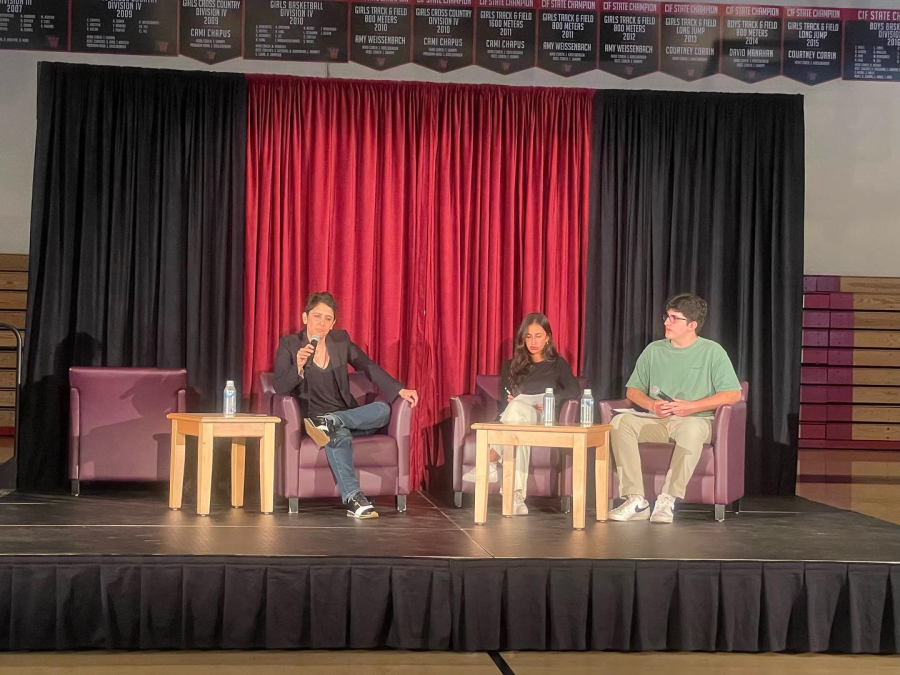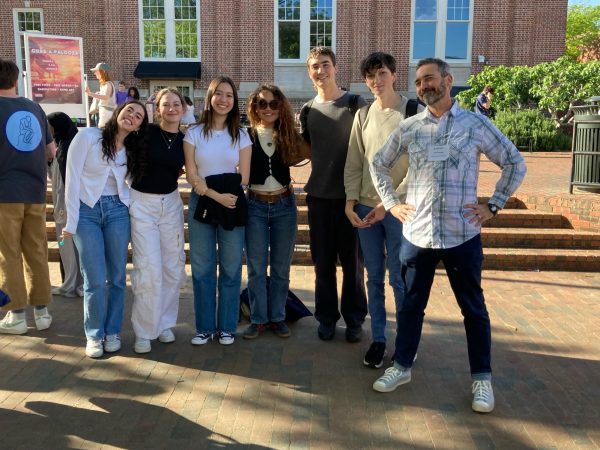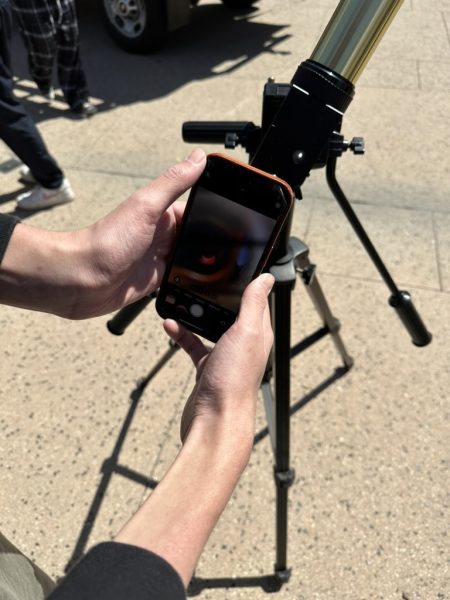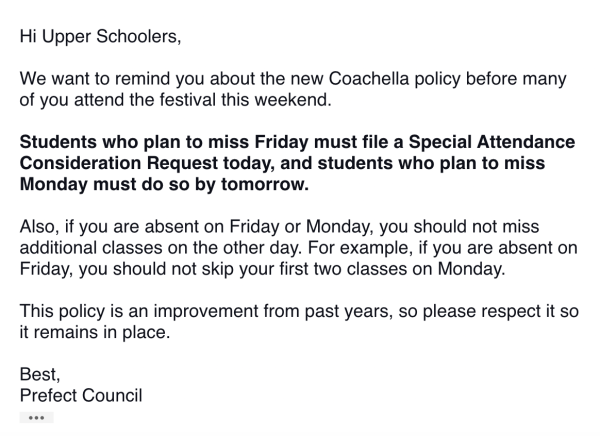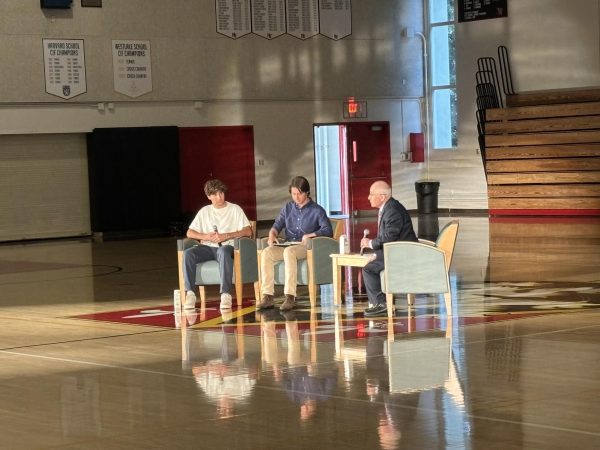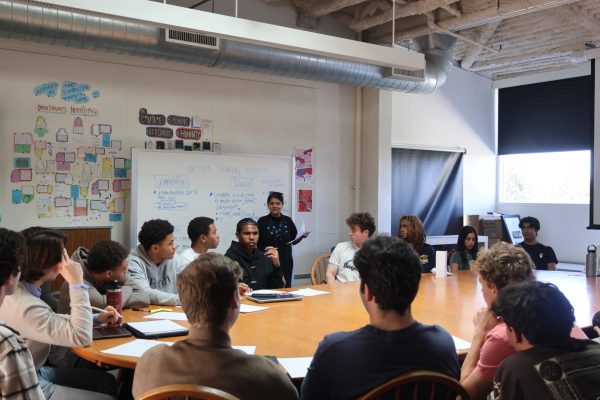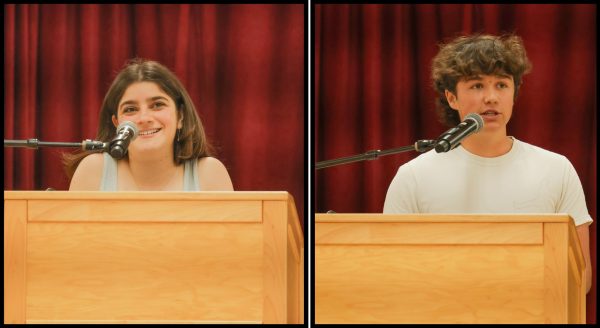School hosts Rayman Mathoda
Printed with permission of Lavinia Tyagi
The school hosted Indian entrepreneur Rayman Mathoda to speak about gender equality and how her identity as a member of the LGBTQ community has shaped her beliefs.
May 25, 2023
South Asian Student Alliance (SASA), Gay and Sexuality Alliance (GSA) and Empower and Women of Color (WOC) hosted Indian entrepreneur Rayman Mathoda in an assembly for Juniors and Seniors during Sophomore Seminar on May 15.
Mathoda is currently CEO of real-estate loan firm Anchor Loans. She also serves as the Chairperson of the Board on Desi Rainbow Parents & Allies, a nonprofit focused on supporting South Asian LGBTQ individuals.
Mathoda was born in India and said her Sikh religion, which her family was a part of, introduced her to ideas of gender equality.
“I was born into a Sikh family,” Mathoda said. “[The Sikh religion] came about in the 1400s, and it was the first one that declared women and men equal and gave everybody unisex names. This was the religion that sort of brought gender equality to India.”
Mathoda said she was raised to believe she would be put into an arranged marriage with a man, but after attending a high-school reunion, she found her true identity.
“I went to [a reunion] as a straight woman — I thought I was going to have an arranged marriage because I thought the way life works is passion comes and goes when you marry somebody from a good family,” Mathoda said. “That’s what my parents did, and it seemed to work for most of my family. A few months later, I was coming to the realization that I was in love with this woman.”
SASA leader Lavinia Tyagi ’23 said hearing from a South Asian person was important in bridging understanding of cultures.
“The fact that SASA, a small affinity group, was able to bring in a speaker to talk to a large audeince that may not normally be hearing from a South Asian person is a big deal,” Tyagi said. “A big part of bridging the gaps between a diverse group is simply knowledge and understanding each other’s background.”



































